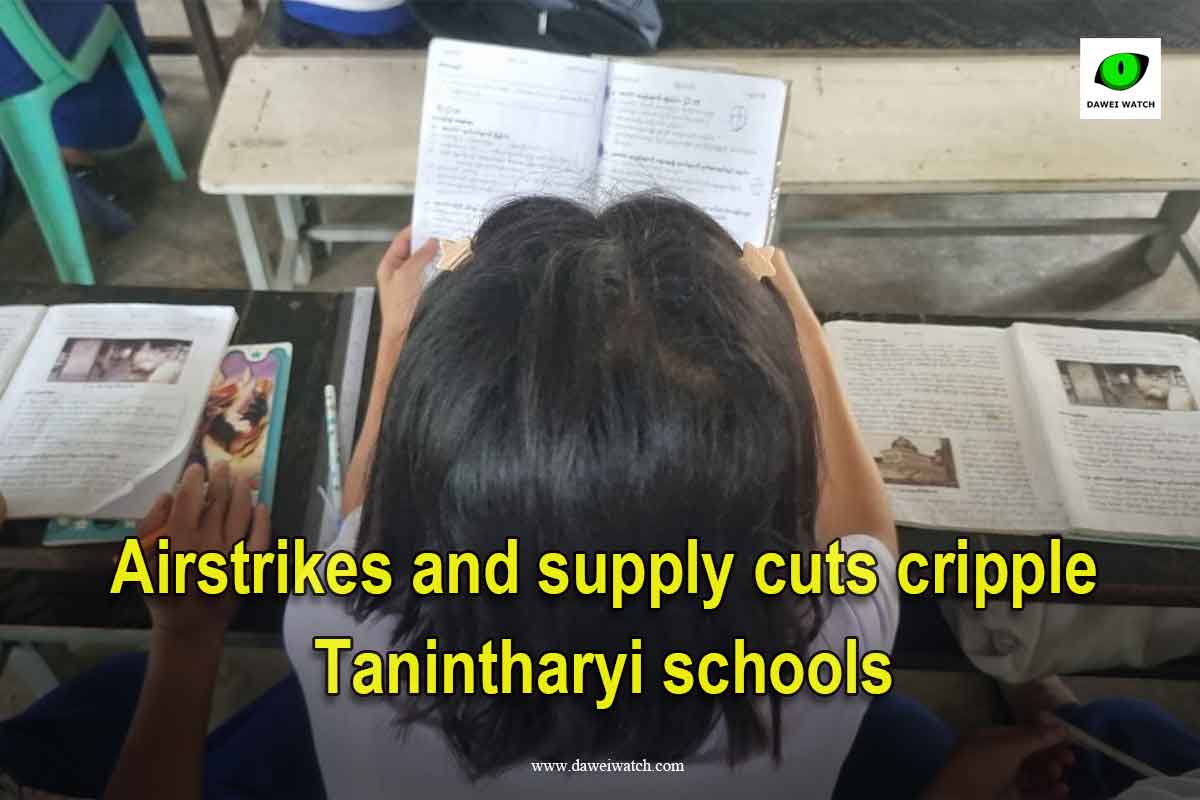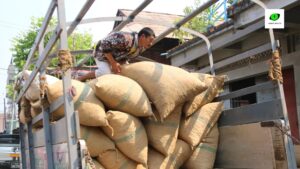Education across the Tanintharyi Region continues to face mounting challenges as schools struggle to reopen amidst ongoing conflict, military airstrikes, and severe shortages of teaching materials.
While military-controlled education authorities attempt to implement a non-formal education system for thousands of out-of-school children, the overall enrollment figures for the current academic year remain significantly lower than previous years.
According to the Tanintharyi Regional Education Department, over 190,000 students have enrolled in basic education, monastic, and private schools across the region for the current academic year. However, this figure is approximately 30,000 fewer than the 220,000 students who enrolled in the 2024-2025 academic year, with enrollment still ongoing until the end of June.
Out of more than 1,300 schools in Tanintharyi Region, only 829 are currently operational due to the ongoing armed conflict.
Non-formal education for dropouts
In response to the growing number of children who have missed school for three years since the 2021 military coup, education authorities working under the SAC have introduced a non-formal education system.
Under this program, children aged 10 to 14 will be categorized at the primary level, while those up to 18 will be placed in the middle school level. Grade 1 to Grade 3 will be grouped under Level 1, and Grades 4 and 5 under Level 2.
The Dawei Township Education Office said classes under this system are set to begin on July 1 for primary-level students and August 1 for middle school level students. Around 300 students have registered as of early June.
Parents, like a mother from Win Wa village, expressed relief for those who enrolled their children earlier but highlighted the growing desperation among others.
“Now, since parents can no longer bear it, many are coming to the city to enroll their children in school. The schools say they won’t accept older children and that they will be taught through the non-formal education system instead.”
Material shortages and damaged facilities
Teachers in resistance-controlled areas of the Tanintharyi Township are grappling with a severe shortages of teaching materials. The military council has blocked the transportation and import of supplies since early January, making it nearly impossible to acquire essential items like cardboard, colored paper, and even blackboards.
“It was easier to buy things last year. This year, it’s much harder,” a 40-year-old female teacher shared. A 27-year-old teacher added, “We can’t even buy blackboards, so we have to rotate classes to teach. There aren’t enough toys either, so some children fight over them.”
Compounding these issues, teachers report that military council soldiers have occupied school buildings during operations, often destroying teaching materials, including blackboards.
According to the local education board, more than 7,000 students are studying in over 40 community-based schools in the Tanintharyi township.
Airstrikes hamper reopening efforts
The most pressing concern for the education community in areas like Thayetchaung Township is the constant threat of military airstrikes.
Local residents and educators report that schools are struggling to reopen due to repeated aerial bombings by the military council, even in the absence of active ground battles.
Recent airstrikes in Thayetchaung Township have targeted villages such as Yange, Kyauk Khamauk, and Winkapaw, and a KNLA base on a hilltop. These attacks, which have occurred without ground engagements, have resulted in at least four civilian deaths, including a 7-year-old child, and multiple injuries.
“The schools around here are making serious efforts to reopen, but the truth is, they simply don’t dare to open due to the situation,” said a teacher.
Parents live in fear, as one shared, “Everyone lives in constant fear of airplane. The military might drop bombs without even knowing—or caring—whether children are studying inside.”
In response to these escalating dangers, the National Unity Government (NUG)’s Ministry of Education issued a directive on May 25, instructing all NUG-affiliated schools nationwide to temporarily close.
The directive stated that schools and public places like hospitals are being deliberately targeted by military airstrikes.
Despite these immense challenges, various forms of education including NUG-affiliated schools, community-based schools, and self-funded schools continue to provide education to children in Tanintharyi Region who are unable to access formal schooling.







